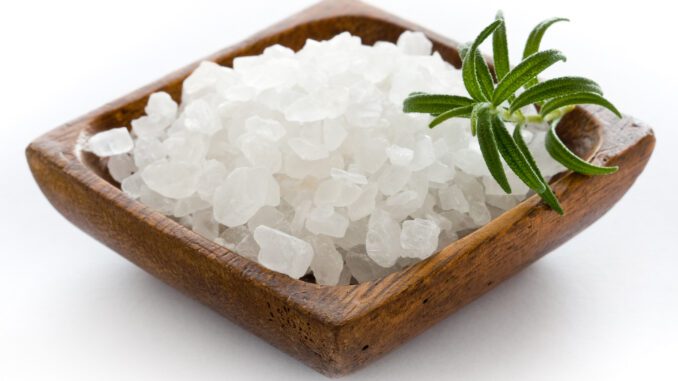
What is a common salt?
Salt mainly represents sulfates, chlorides, carbonates, and nitrates. Common salt is mainly known as sodium chloride. This salt is the salt that we are using in our food and also has a neutral pH. Common salt is mainly obtained from seawater. Although seawater contains many types of salt. But sodium chloride is one of them and is obtained by evaporation of seawater then separating and further purification.
Another name for common salt is rock salt. Deposits of such solid salts are found all over the world. these salts are brown crystals of large size. the color is mainly due to impurities.
Uses of Common salt
Common salt can be used as a part of the various materials for day-to-day use. some of the examples of materials which are using common salts are as follows
1. Baking soda
Baking soda or sodium hydrogen carbonate (NaHCO3) is produced by using sodium chloride or common salt as one of its ingredients.
NaCl + H2O + CO2 + NH3 NaHCO3 = NH4Cl + NaHCO3 (Baking soda)
This sodium hydrogen carbonate gets converted into sodium carbonate when heated during cooking or baking
2 NaHCO3 = Na2CO3 + H2O + CO2 (Sodium carbonate)
Uses of Baking soda
- Used as an antacid
- Baking soda can be used as a fire extinguisher
- This compound is used for baking as the name suggests
2. Bleaching powder
This powder is also known as calcium hypochlorite. Bleaching powder is mainly used for water treatment or bleaching of clothes or paper etc. Another name for bleaching powder is chloride powder or chlorinated lime.
Bleaching powder is produced by electrolysis of aqueous sodium chloride (Brine).
Uses of Bleaching powder
- Laundry for bleaching washed clothes.
- As an oxidizing agent in many chemical industries.
- Paper and pulp industry.
- Treating drinking water.
3. Washing soda
Washing soda is also known as sodium bicarbonate or soda ash or soda crystals. It is obtained by the recrystallization of sodium carbonate. It is a basic salt.
Na2CO3 + 10 H2O = Na2CO3 – 10 H2O (Sodium carbonate)
Uses of Washing soda
- Used in glass, soap, and paper industries.
- For domestic purposes like a. cleaning agents.
- Removing the permanent hardness of the water.
